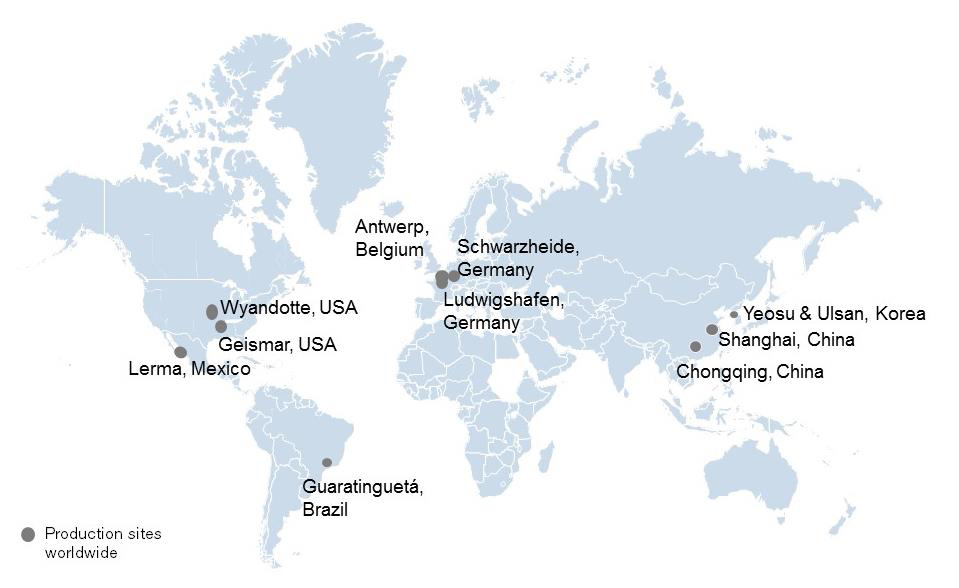2. Introduction
Diphenylmethane diisocyanate (MDI) is a member of the diisocyanate family associated with polyurethane chemistry. The term polyurethane applies to a large number of polymers formed through the polyaddition of polyfunctional isocyanates and isocyanate-reactive polyfunctional compounds. Polyurethanes are some of themost versatile polymers in existence today. They exist in numerous forms, ranging from lightweight rigid foams todense solid compositions, and from soft flexible foams to tough elastomeric moldings.
BASF Commitment to the Polyurethane Industry
The worldwide polyurethane operations of the BASF Group include a broad range of activities such as:
- Urethane chemicals
- Diphenylmethane diisocyanate (MDI)
- Toluene diisocyanate (TDI)
- Polyols (polyether, polyester)
- Polyurethane systems
- Polyurethane elastomers / thermoplastics
- Microcellular polyurethanes
These activities are coordinated on a global basis to assure a high level of quality to polyurethane processors and
users throughout the world.
Since its founding in 1865, BASF SE has placed major emphasis on research and development. Today, the results
of widely based research activities in Europe and North America are directly available to all independently operating
companies in the BASF Group. This constant interchange of technical expertise among businesses in the BASF
Group ensures that BASF customers will benefit from the very latest know-how of polyurethane technology within
the Group.
Figure 1 illustrates the worldwide geographic spread of BASF Group products.
BASF manufactures and markets three of the key urethane chemicals: MDI, TDI, and Polyols. MDI is produced in Geismar, LA, U.S.A.; Antwerp, Belguim; Shanghai and Chongqing, China; and Yeosu, Korea. These facilities produce a full line of MDI products, marketed under the trademark Lupranate® to supply a wide range of polymer applications.
Like many reactive chemicals, MDI products can create hazards if handled carelessly. The purpose of this publication is to outline precautions for the proper handling of diisocyanates under normal and emergency situations. All persons associated with the transportation, storage, or handling of MDI must be thoroughly familiar with the potential hazards and trained in the recommended standard and emergency handling procedures.
This publication is intended only to provide general guidance, and for the area of North America. In some countries, specific regulations supplement or modify the guidance given herein. All users of MDI products must be fully informed on the most current guidelines and regulations of all applicable authorities. Users of MDI are strongly urged to consult the appropriate regulatory authorities before finalizing specifications for processing, handling, and storage equipment. Any technical advice furnished, or recommendation made herein is believed to be reliable but BASF makes no warranty, either expressed or implied, as to its accuracy or completeness or of the results to be obtained.
The current safety data sheet (SDS) should be used in conjunction with this publication because the SDS is updated as changes in regulatory requirements occur. SDSs can be obtained online (http://polyurethanes.basf.us/) or directly from your BASF representative.

No comments to display
No comments to display